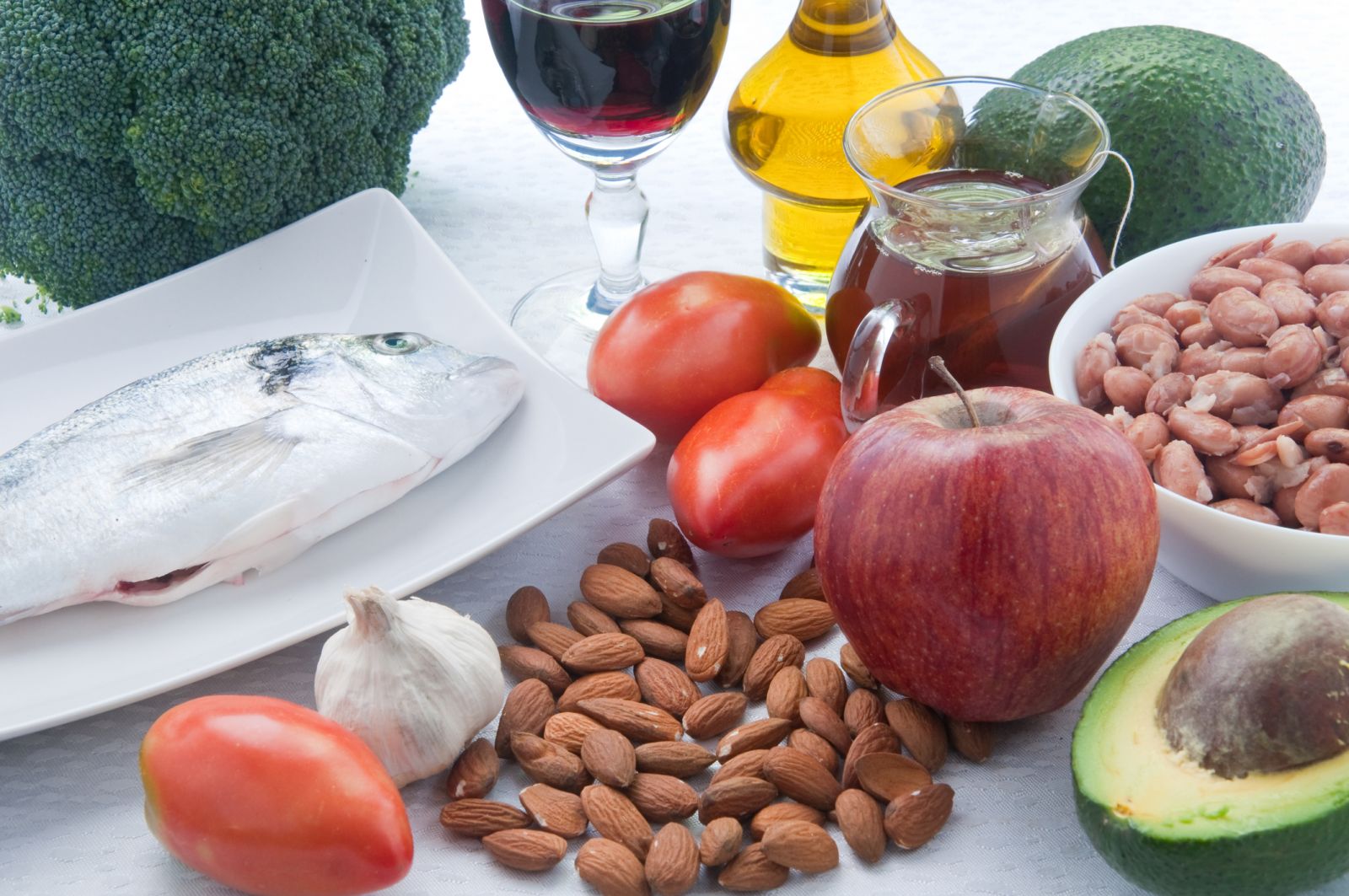Cholesterol. It’s this word that gets tossed in and out of discussions on heart health, often leaving us with a vague notion of it and a tingle of fear. So, what exactly is cholesterol, and why is it important to know our cholesterol levels? Let us delve deeper into the interesting world of cholesterol, the role it plays in our bodies, and how to keep a healthy balance for a happy heart.
What is cholesterol? – Unveiling the Mystery
Cholesterol is not some evil creature lurking within us, but it’s rather a waxy, fat-like substance, endogenously produced in the liver. Think more of it being one of the basic building blocks; it plays a vital role in the formation of healthy cells in our bodies. Cholesterol also contributes to the production of other important hormones in charge of digestion and synthesis of vitamin D.
However, this cholesterol is not entirely synthesized in the body. Some of it comes from food, mainly from animal products such as egg yolks, meat, and milk. Once absorbed from the intestinal tract into the blood stream, it distributes in the entire body in combination with protein particles called lipoproteins. These lipoproteins are more or less like delivery vans that move cholesterol through the blood to peripheral tissues for delivery.

There are two major forms of cholesterol, each playing quite different roles. These are:
- LDL (Low-Density Lipoprotein): Sometimes referred to as “bad” cholesterol, LDL is responsible for ferrying cholesterol produced in the liver to various tissue destinations within our body. Now, here’s the catch. When there is too much LDL cholesterol floating around in the bloodstream,. Over time, this can harden into fatty deposits called plaque, which narrow the arteries and partly obstruct blood flow. It is this restricted blood flow that puts somebody at an increased risk of heart disease and stroke.
- HDL (High-Density Lipoprotein): Sometimes referred to as the “good” cholesterol, HDL actually does the opposite. Acting somewhat as a scavenger, it picks up excess cholesterol from the arteries and whisks it away back to the liver for destruction and elimination. Higher HDL levels are therefore generally desirable since they clear our arteries and can support good cardiovascular health.
What is a Normal Cholesterol Level?
Cholesterol levels are measured in milligrams per deciliter (mg/dL). Here’s a general breakdown of adult cholesterol levels:
Optimal: Total cholesterol below 200 mg/dL; LDL below 100 mg/dL; HDL above 60 mg/dL
Near Optimal/Borderline High: Total cholesterol 200-239 mg/dL; LDL 100-129 mg/dL
High: Total cholesterol 240-299 mg/dL; LDL 130-189 mg/dL
Very High: Total cholesterol above 300 mg/dL; LDL above 190 mg/dL
These, however, are general recommendations. Your doctor will take your risk factors—for example, whether or not you have a history of heart disease in your family—to determine the best cholesterol range for you.
Does High Level of Cholesterol Cause Symptoms?
Most often, high cholesterol creates no clear symptoms. That is why regular checkups with your doctor become part of health maintenance—you need them to check and track cholesterol levels so that in case of any anomaly, it would be detected at an early stage.
Treatments of High Cholesterol: A Multifaceted Approach
Your doctor will ideally measure your cholesterol levels and, in case they are over the recommended range, not worry. There are efficient ways of bringing down cholesterol levels to have a safe heart. The multifaceted approach you and your doctor can take in managing high cholesterol levels includes:
1. Modifying Lifestyle: Adopting a Heart-Healthy Lifestyle
A heart-healthy lifestyle generally makes up the core for managing high cholesterol. It will mean some positive changes in your everyday routine, particularly the following:
- Dietary Tweaks: A dietary makeover will often form the framebuffer of your defense. Your doctor or a dietitian will help you evolve a personal plan with emphasis on
- Fruits, Vegetables, and Whole Grains: Filling up the plate with these nutrient-dense powerhouses provides all the important and required vitamins, minerals, and fiber. Fiber plays a very important role in managing your cholesterol by making the excretion of extra cholesterol out of your body easier.
- Lean Protein Sources: Aim to eat lean protein sources, including fish, poultry, beans, and lentils. These provide you with the essential building blocks that your body needs without the saturated fat found in red meat.
- Healthy Fats: Not all fats are created equal. Add healthy fats like those found in avocados, nuts, seeds, and olive oil into your diet. These fats actually assist in lowering LDL cholesterol and improving HDL levels.
Finally, Limited Saturated and Trans Fats: The culprits that raise LDL cholesterol to high levels are saturated and trans fats, which should be highly minimized or totally eliminated in your diet. Such unhealthy fats can be traced to processed foods, fried foods, red meats, and full-fat dairy products.
- Limit Sugar Intake: Excessive sugar intake may lead to bad cholesterol. Limit sugary drinks, processed snacks, and sweets as much as possible.
- Regular Exercise: Physical exercise is one of the lethal weapons against high cholesterol. It is recommended that you gather a minimum of 150 minutes of moderate-intensity exercise or 75 minutes of vigorous-intensity exercise most days of the week. Brisk walking, swimming, cycling, and dancing are all good options.
Weight Management: If you are overweight or obese, bringing down your weight by just a little may significantly shift your cholesterol profile. Excess weight loss reduces the demand on your liver to produce cholesterol and helps to improve your body’s ability to get rid of excess LDL cholesterol.
- Stress Management: Chronic stress is a big mess-maker in overall health and cholesterol. Finding healthy ways to deal with stress, be it through yoga, meditation, or deep breathing exercises, can literally make all the difference.
- Smoking Cessation: Smoking is one of the major risk factors behind heart diseases and stroke. So, quitting the addiction significantly improves blood flow and reduces the chance of plaque buildup in the arteries.
2. Medication Options: When Lifestyle Changes Aren’t Enough
Sometimes it’s just not possible to get control of high cholesterol with lifestyle modifications. Your doctor will prescribe different medications to bring down your LDL cholesterol and risk level for heart disease. The common medication options include
- Statins: They are drugs which become the frontline in high LDL levels. Statins work by blocking an element in the liver required to make cholesterol and they lower its LDL level.
- Bile Acid Sequestrants: These drugs bind to bile acids in your intestine and can no longer be reabsorbed into your blood. Since bile acids are made from cholesterol, by preventing their absorption, such drugs help decrease the amount of LDL cholesterol.
- Ezetimibe: The mechanism of action of this medication involves inhibiting the absorption of cholesterol from your intestines.
- PCSK9 inhibitors: These are some of the newest injectables available. They mainly act via a protein involved in the promotion of the production of LDL cholesterol from the liver, known as PCSK9. Indicated in very high LDL cholesterols or others where drugs are bad enough in their response.
Medications are not magic bullets. They work along with a healthy lifestyle. Your doctor will prescribe the most appropriate medication and dosage for you and monitor you for possible side effects.
By maintaining a heart-healthy lifestyle and working with your doctor to keep your cholesterol level under control, you can reduce your risk of heart diseases and stroke and clear the path toward speedy, healthy longevity.
The Numbers You Need to Know to Keep Your Heart Healthy:
Cholesterol. It’s this word that gets tossed in and out of discussions on heart health, often leaving us with a vague notion of it and a tingle of fear. So, what exactly is cholesterol, and why is it important to know our cholesterol levels? Let us delve deeper into the interesting world of cholesterol, the role it plays in our bodies, and how to keep a healthy balance for a happy heart.
What is cholesterol? – Unveiling the Mystery
Cholesterol is not some evil creature lurking within us, but it’s rather a waxy, fat-like substance, endogenously produced in the liver. Think more of it being one of the basic building blocks; it plays a vital role in the formation of healthy cells in our bodies. Cholesterol also contributes to the production of other important hormones in charge of digestion and synthesis of vitamin D.
However, this cholesterol is not entirely synthesized in the body. Some of it comes from food, mainly from animal products such as egg yolks, meat, and milk. Once absorbed from the intestinal tract into the blood stream, it distributes in the entire body in combination with protein particles called lipoproteins. These lipoproteins are more or less like delivery vans that move cholesterol through the blood to peripheral tissues for delivery.
There are two major forms of cholesterol, each playing quite different roles. These are:
- LDL (Low-Density Lipoprotein): Sometimes referred to as “bad” cholesterol, LDL is responsible for ferrying cholesterol produced in the liver to various tissue destinations within our body. Now, here’s the catch. When there is too much LDL cholesterol floating around in the bloodstream,. Over time, this can harden into fatty deposits called plaque, which narrow the arteries and partly obstruct blood flow. It is this restricted blood flow that puts somebody at an increased risk of heart disease and stroke.
- HDL (High-Density Lipoprotein): Sometimes referred to as the “good” cholesterol, HDL actually does the opposite. Acting somewhat as a scavenger, it picks up excess cholesterol from the arteries and whisks it away back to the liver for destruction and elimination. Higher HDL levels are therefore generally desirable since they clear our arteries and can support good cardiovascular health.
What is a Normal Cholesterol Level?
Cholesterol levels are measured in milligrams per deciliter (mg/dL). Here’s a general breakdown of adult cholesterol levels:
Optimal: Total cholesterol below 200 mg/dL; LDL below 100 mg/dL; HDL above 60 mg/dL
Near Optimal/Borderline High: Total cholesterol 200-239 mg/dL; LDL 100-129 mg/dL
High: Total cholesterol 240-299 mg/dL; LDL 130-189 mg/dL
Very High: Total cholesterol above 300 mg/dL; LDL above 190 mg/dL
These, however, are general recommendations. Your doctor will take your risk factors—for example, whether or not you have a history of heart disease in your family—to determine the best cholesterol range for you.
Does High Level of Cholesterol Cause Symptoms?
Most often, high cholesterol creates no clear symptoms. That is why regular checkups with your doctor become part of health maintenance—you need them to check and track cholesterol levels so that in case of any anomaly, it would be detected at an early stage.
Treatments of High Cholesterol: A Multifaceted Approach
Your doctor will ideally measure your cholesterol levels and, in case they are over the recommended range, not worry. There are efficient ways of bringing down cholesterol levels to have a safe heart. The multifaceted approach you and your doctor can take in managing high cholesterol levels includes:
1. Modifying Lifestyle: Adopting a Heart-Healthy Lifestyle
A heart-healthy lifestyle generally makes up the core for managing high cholesterol. It will mean some positive changes in your everyday routine, particularly the following:
- Dietary Tweaks: A dietary makeover will often form the framebuffer of your defense. Your doctor or a dietitian will help you evolve a personal plan with emphasis on
- Fruits, Vegetables, and Whole Grains: Filling up the plate with these nutrient-dense powerhouses provides all the important and required vitamins, minerals, and fiber. Fiber plays a very important role in managing your cholesterol by making the excretion of extra cholesterol out of your body easier.
- Lean Protein Sources: Aim to eat lean protein sources, including fish, poultry, beans, and lentils. These provide you with the essential building blocks that your body needs without the saturated fat found in red meat.
- Healthy Fats: Not all fats are created equal. Add healthy fats like those found in avocados, nuts, seeds, and olive oil into your diet. These fats actually assist in lowering LDL cholesterol and improving HDL levels.
Finally, Limited Saturated and Trans Fats: The culprits that raise LDL cholesterol to high levels are saturated and trans fats, which should be highly minimized or totally eliminated in your diet. Such unhealthy fats can be traced to processed foods, fried foods, red meats, and full-fat dairy products.
- Limit Sugar Intake: Excessive sugar intake may lead to bad cholesterol. Limit sugary drinks, processed snacks, and sweets as much as possible.
- Regular Exercise: Physical exercise is one of the lethal weapons against high cholesterol. It is recommended that you gather a minimum of 150 minutes of moderate-intensity exercise or 75 minutes of vigorous-intensity exercise most days of the week. Brisk walking, swimming, cycling, and dancing are all good options.
Weight Management: If you are overweight or obese, bringing down your weight by just a little may significantly shift your cholesterol profile. Excess weight loss reduces the demand on your liver to produce cholesterol and helps to improve your body’s ability to get rid of excess LDL cholesterol.
- Stress Management: Chronic stress is a big mess-maker in overall health and cholesterol. Finding healthy ways to deal with stress, be it through yoga, meditation, or deep breathing exercises, can literally make all the difference.
- Smoking Cessation: Smoking is one of the major risk factors behind heart diseases and stroke. So, quitting the addiction significantly improves blood flow and reduces the chance of plaque buildup in the arteries.
2. Medication Options: When Lifestyle Changes Aren’t Enough
Sometimes it’s just not possible to get control of high cholesterol with lifestyle modifications. Your doctor will prescribe different medications to bring down your LDL cholesterol and risk level for heart disease. The common medication options include
Also read: Reimagining the Revolution: How Monitoring Tech Transformed Remote and Hybrid Work
- Statins: They are drugs which become the frontline in high LDL levels. Statins work by blocking an element in the liver required to make cholesterol and they lower its LDL level.
- Bile Acid Sequestrants: These drugs bind to bile acids in your intestine and can no longer be reabsorbed into your blood. Since bile acids are made from cholesterol, by preventing their absorption, such drugs help decrease the amount of LDL cholesterol.
- Ezetimibe: The mechanism of action of this medication involves inhibiting the absorption of cholesterol from your intestines.
- PCSK9 inhibitors: These are some of the newest injectables available. They mainly act via a protein involved in the promotion of the production of LDL cholesterol from the liver, known as PCSK9. Indicated in very high LDL cholesterols or others where drugs are bad enough in their response.
Medications are not magic bullets. They work along with a healthy lifestyle. Your doctor will prescribe the most appropriate medication and dosage for you and monitor you for possible side effects.
By maintaining a heart-healthy lifestyle and working with your doctor to keep your cholesterol level under control, you can reduce your risk of heart diseases and stroke and clear the path toward speedy, healthy longevity.

